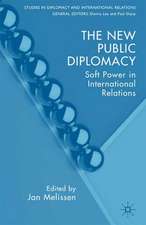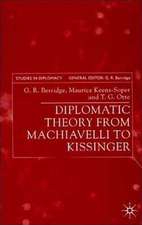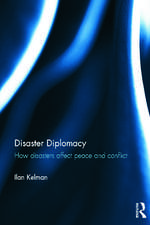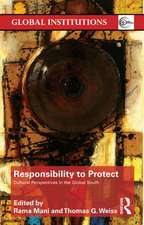Sino-Indian and Sino-South Korean Relations: Comparisons and Contrasts
Autor P. R. Chari, Vyjayanti Raghavanen Limba Engleză Paperback – 25 apr 2019
| Toate formatele și edițiile | Preț | Express |
|---|---|---|
| Paperback (1) | 436.14 lei 6-8 săpt. | |
| Taylor & Francis – 25 apr 2019 | 436.14 lei 6-8 săpt. | |
| Hardback (1) | 1000.27 lei 6-8 săpt. | |
| Taylor & Francis – 24 oct 2014 | 1000.27 lei 6-8 săpt. |
Preț: 436.14 lei
Nou
Puncte Express: 654
Preț estimativ în valută:
83.48€ • 90.71$ • 70.17£
83.48€ • 90.71$ • 70.17£
Carte tipărită la comandă
Livrare economică 21 aprilie-05 mai
Preluare comenzi: 021 569.72.76
Specificații
ISBN-13: 9780367176921
ISBN-10: 0367176920
Pagini: 276
Dimensiuni: 138 x 216 x 15 mm
Greutate: 0.45 kg
Ediția:1
Editura: Taylor & Francis
Colecția Routledge India
Locul publicării:Oxford, United Kingdom
ISBN-10: 0367176920
Pagini: 276
Dimensiuni: 138 x 216 x 15 mm
Greutate: 0.45 kg
Ediția:1
Editura: Taylor & Francis
Colecția Routledge India
Locul publicării:Oxford, United Kingdom
Public țintă
PostgraduateCuprins
Acknowledgements. Chapter 1. Introduction. Chapter 2. China‘s Rise: How Imminent, How Real? Chapter 3. Will China‘s Peaceful Rise be Peaceful? Chapter 4. India‘s Uncertain Rise. Chapter 5. Sino-Indian Relations. Chapter 6. Sino-Indian Strategic Interactions. Chapter 7. Sino-South Korean Relations. Chapter 8. China‘s Rise, Korea‘s Concern. Chapter 9. Conclusions. Appendix. About the Authors. Index.
Notă biografică
P. R. Chari is Visiting Professor, Institute of Peace and Conflict Studies, New Delhi.
Vyjayanti Raghavan is Professor and Head of Department, Korean Language & Culture Studies, Centre for Japanese, Korean & North East Asian Studies, Jawaharlal Nehru University, New Delhi.
Vyjayanti Raghavan is Professor and Head of Department, Korean Language & Culture Studies, Centre for Japanese, Korean & North East Asian Studies, Jawaharlal Nehru University, New Delhi.
Descriere
This book addresses the compulsions that underlie the China‘s relations with India and South Korea both increasingly mutually dependent on China for markets, trade, investments, technology, tourism, etc. It inquires into two sets of regional relationships, with China being the common linking factor. While examining the generational change in the leadership of China, India and South Korea, this study will be a significant addition to the evolving sphere of comparative regional relations.












